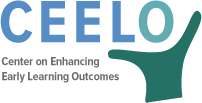
Early Childhood Regional Conference: Building SEA Capacity to Implement and Sustain Comprehensive Early Childhood Assessment Systems – September 16–17, 2013, Rosemont, Illinois
Purpose of the Meeting: The purpose of the regional meeting was to share research and best practice to improve states’ knowledge about and use of early childhood comprehensive assessment systems for children birth through Grade 3. The meeting provided opportunities for state teams from Illinois, Indiana, Iowa, Michigan, Minnesota, and Wisconsin to discuss with peers and experts a range of strategies to provide leadership, align standards and assessments, support professional development, and effectively finance comprehensive early childhood assessment systems that can contribute to improved teaching practice and outcomes for children.
Meeting Objectives:
- State teams will create a blueprint for moving forward in the implementation of their state’s early childhood comprehensive assessment system for children birth through Grade 3.
- State teams will gain new knowledge and best practice from their peers and colleagues about strategies to implement the components of an early childhood assessment system, including governance, finance, standards and assessment, and professional development.
- State teams, regional centers, and the Center on Enhancing Early Learning Outcomes (CEELO) will identify their technical assistance needs to meet state goals in the coming year.
Session Descriptions, Presentations and Handouts
Systems Approach of the Comprehensive Assessment System for Early Childhood – Tom Shultz, Director of Early Learning Programs and the Early Childhood Standards and Assessments State Collaborative, Council of Chief State School Officers
- Handout 1 – Comprehensive Assessment Systems Definitions
- Handout 2 – Comprehensive Assessment Systems Key Components
Governance, Leadership, and Financing: The Foundation of the Comprehensive Assessment System – Michigan and Illinois shared their successes and challenges in addressing issues of coordinating governance and authority, ensuring adequate funding, and supporting collaborative leadership of the early childhood system and implications for implementing a comprehensive assessment system at the state and local levels.
State Team Time – State teams used a mapping tool to assess the status of their comprehensive assessment system and identify priority activities or initiatives to identify action steps.
Keynote Address – Steven Hicks, Senior Policy Advisor, Office of Early Learning, Office of Elementary and Secondary Education, U.S. Department of Education
How Standards, Assessment, and Professional Development Support Effective Implementation of the System – Eboni Howard, Principal Researcher, Education Program, American Institutes for Research
Standards, Assessment, and Professional Development – Facilitated Discussion With State Panel – Minnesota, Iowa, and Wisconsin will share their lessons learned and challenges in aligning standards and assessments, including alignment with the Common Core State Standards and assessments. State panelists also will discuss what professional development they are providing teachers and administrators to support effective implementation.
State Team Time – Setting Goals for the Comprehensive Assessment System – States set goals and objectives, and identified technical assistance needs for the year in implementing and sustaining the initiatives that build toward a comprehensive assessment system for children birth through Grade 3.
